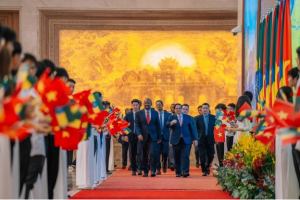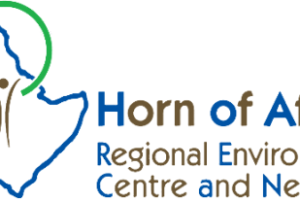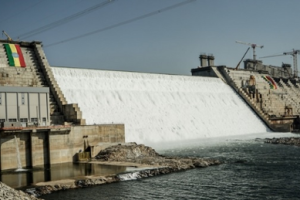The 38th African Union heads of state and government summit ended a few days ago after discussing on a range of issues and challenges the continent has been facing. According to the Ministry of Foreign Affairs of FDRE, a king, 30 presidents, 3 vice presidents, 5 prime ministers and 17 first ladies from member states took part in the summit together with their respective delegations.
The presence of more than 12 thousand participants including all these leaders, statesmen, diplomats and hundreds of international journalists, leaders of international organisations as well as observers was a big homework for the organizing committee of the summit that was busy preparing the event for weeks.
In the end it showed how meticulously it prepared the schedules in terms of arrival, stay and departure of the participants and that it stood up to the task. The impeccable results in terms of logistics, accommodation, multilingual volunteer cadets facilitated this year’s summit to be more convenient for the guests minimizing communication barriers.
Moreover, the security situation of the city was reliable as usual with no concerns of breakdown of peace and safety of participants.
According to the Ministry of Foreign Affairs of Ethiopia, the various bilateral side meetings on the margins of the summit by senior leadership including the Prime Minister, Foreign Minister and State Minister have created conducive atmosphere for the signing of miscellaneous agreements and renewed engagements to safeguard Ethiopia’s interests at national, regional and continental levels.
In the end, every one left Addis impressed by the warm hospitality of the hosts and the kind of organisation they witnessed. They expressed their gratitude for such an eventful and successful summit. It was another confirmation that Ethiopia is well capable of hosting international summits and conferences of any kind.
The summit was expected to be a pivotal moment for the AU also because, among other issues, it had to elect its future leaders such as the Chairman of the AU for the coming years as the sitting one Mussa Faki Mohamet of Chad did finish his two terms period and had to leave office. The various commissions of the AU also had to have new commissioners and they did. The new chairperson of the AU Commission has been elected. It is Djibouti’s Minister of Foreign Affairs Mahmoud Ali Youssouf beating former prime minister of Kenya Raila Odinga and former minister of foreign affairs of Madagascar Richard Randriamandrato.
At a ceremony held in Addis Ababa to honour the outgoing Chairperson of the African Union Commission and the outgoing Deputy Chairperson, Dr Monique Nsanzabaganwa, Prime Minister Abiy Ahmed (PhD) held a state dinner for the heads of state and government in attendance of the summit. The premier welcomed the new Chairperson Mahmoud Youssouf and thanked the outgoing Chairperson Moussa Faki for his leadership and friendship over the past years. Abiy wrote on his social media pages that “Ethiopia thanks you for your dedicated service for Africa. We heartily wish you the best in your endeavours.”
The central theme of the 38th AU summit, “Justice for Africans and People of African Descent Through Reparations” is focused on the issue of the long overdue question of reparations Africans claim for the past injustices, wrongs and ordeals they suffered, not only on the occasion of the colonization of the continent for decades and the exploitations of Africans, but also for the slave trade they were subjected to and mercilessly uprooted from their natural habitats and detached from their families including their children and transported to Europe and North America to exploit their labour for free.
The African Union Leader on Advancing the Cause of Justice and Payment of Reparations and President of the Republic of Ghana, John Mahama stated the urgent need for stronger legal and institutional mechanisms at national, regional and international levels to ensure reparations for the historical trauma inflicted on Africa.
He described the transatlantic slave trade, colonialism, and neo-colonial exploitation as heinous crimes against humanity, noting that more than 12.5 million Africans were forcibly displaced, with at least 2 million perishing during the Middle Passage, the sea journey undertaken by slave ships from West Africa to the West Indies.
Therefore, President Mahama demanded justice for the historical trauma inflicted on all peoples of African descent as it is not just a conversation, but a harsh and tangible reality. He noted, “Justice for the historical trauma inflicted on global Africa is not just a conversation, but a reality” and urged unified action and unwavering commitment to this transformative endeavour.
Colonial policies have stifled Africa’s industrial growth, leading to trillions of dollars in lost resources and perpetuating dependency on foreign economies, Mahama added.
He said, “The legacy of this brutal system along with colonialism, apartheid, genocide, and neo-colonial exploitation have left deep and enduring scars on the fabric of our societies.”
He also called for comprehensive reparative justice, including financial compensation, restitution, rehabilitation, and guarantees of non-repetition.
It is to be recalled that the Accra Reparations Conference, hosted by Ghana in November 2023, was a pivotal step in advancing the reparation movement. The conference brought together African leaders, scholars, and the diaspora representatives to lay the foundation for stronger advocacy and policy frameworks. Then the AU Commission, in collaboration with key partners, developed a road map to guide the implementation of the reparations agenda, aligning with the aspirations of Agenda 2063. The initiative seeks to mobilize political will, foster partnerships, and elevate awareness to ensure sustained engagement beyond 2025.
That is why after repeated discussions on this issue for years, the AU Summit of this year has officially endorsed the theme, “Justice for Africans and People of African Descent Through Reparations” bringing the attention of the wider world to this very significant point.
Furthermore however, the summit also discussed AU’s institutional reforms, efforts being exerted to secure permanent representation at the UN Security Council, regional peace and security, implementation of the African Continental Free Trade Agreement, trade and economic integration, agricultural development and climate change, human rights, gender and youth empowerment included among the major agenda items during the two-day summit.
In terms of reparatory justice for Africa it was stated that it can promote the healing process, enhance the demand for equity and the recognition of the rights and contributions by African peoples. At the heart of the discussions at the summit, it was stated that there should be acknowledgement of the deep scars left by colonialism, slavery and systemic racism. These historical injustices have not only disrupted social and economic structures of Africa but also instilled generational trauma in individuals and communities. The leaders at the summit underlined that true justice cannot be achieved without admitting and addressing these past injustices.
On this specific subject, Prime Minister Abiy Ahmed (PhD), has said that the importance of reparations is a means of rectifying the wrongs of the past and calls for transformative process acknowledging past harms and take bold steps to right the wrongs caused upon Africans. The premier added, the theme of this year’s summit also calls on all to heal the scars of historical injustices and overcome the lingering trauma that had long hindered the progress of Africa. Abiy added, “The demand for reparations is not about charity or financial aid. It is a call for justice”, indicating that the theme seeks to restore the dignity of millions and heal the deep scars of poverty, inequality and discrimination.
His words echoed the sentiments of many participants at the summit who recognized that the journey towards true justice involves not just reparatory justice but also systemic changes that empower African nations and communities.
United Nations Secretary-General Antonio Guterres for his part underscored that the world must never forget that Africa is the victim of two colossal and compounded injustices: the profound impact of colonialism and the transatlantic slave trade. Guterres said the roots stretch back centuries and the bitter fruit continues to affect Africans and people of African descent to this day. Hence, the UN Secretary General stressed it is high time for reparatory justice frameworks to be put in place. He demanded therefore justice for the historical trauma inflicted on global Africa as it is not a conversation, but a reality.
The discussions at the summit also touched on the role of the African diaspora. The people of African descent around the world must share in this struggle for justice and acknowledgment of their true origin. The voices of Africans must therefore be amplified for the above stated purpose. Beyond mere rhetoric it should be taken as a call for action that requires commitment, solidarity, and an unwavering dedication to healing the wounds of the past.
The messages echoed at the summit this year mark a significant step towards addressing the extensive and multifaceted layers of injustice Africans and people of African descent underwent igniting a sense of urgency and responsibility among nations to work with the objective of ensuring a more just and more equitable future for Africans.
BY FITSUM GETACHEW
THE ETHIOPIAN HERALD THURSDAY 20 FEBRUARY 2025





